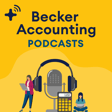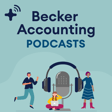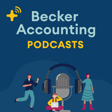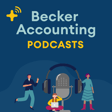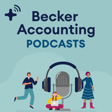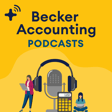
Cool Careers in Accounting Ep. 15 - Building A Business: Insights from a Construction CFO with Joel Sisto
Join Joel Sisto, CFO of IOC Construction, as he shares how he transformed a small construction business into a thriving midsized company. His career path proves that skilled financial professionals are valuable in any industry, which he emphasizes as encouragement for accountants to pursue positions in their areas of interest. Learn the importance of confidence in growing your career, and insights into enhancing efficiency and implementing new processes for greater business success.
Earn CPE by listening to this podcast through a Becker Prime CPE subscription.
Listen to this episode through your Becker LMS platform to complete practice questions, pass the final exam, and earn CPE credit.
Already a Becker Prime CPE customer? Login here.
Have access to Becker CPE through your employer? Earn CPE credit for this podcast however you consume Becker CPE, either through your company’s LMS or via the Becker platform. Not sure where to log in? Check with your CPE admin.
Learn more about CPE Podcasts from Becker: https://www.becker.com/cpe/becker-podcasts
